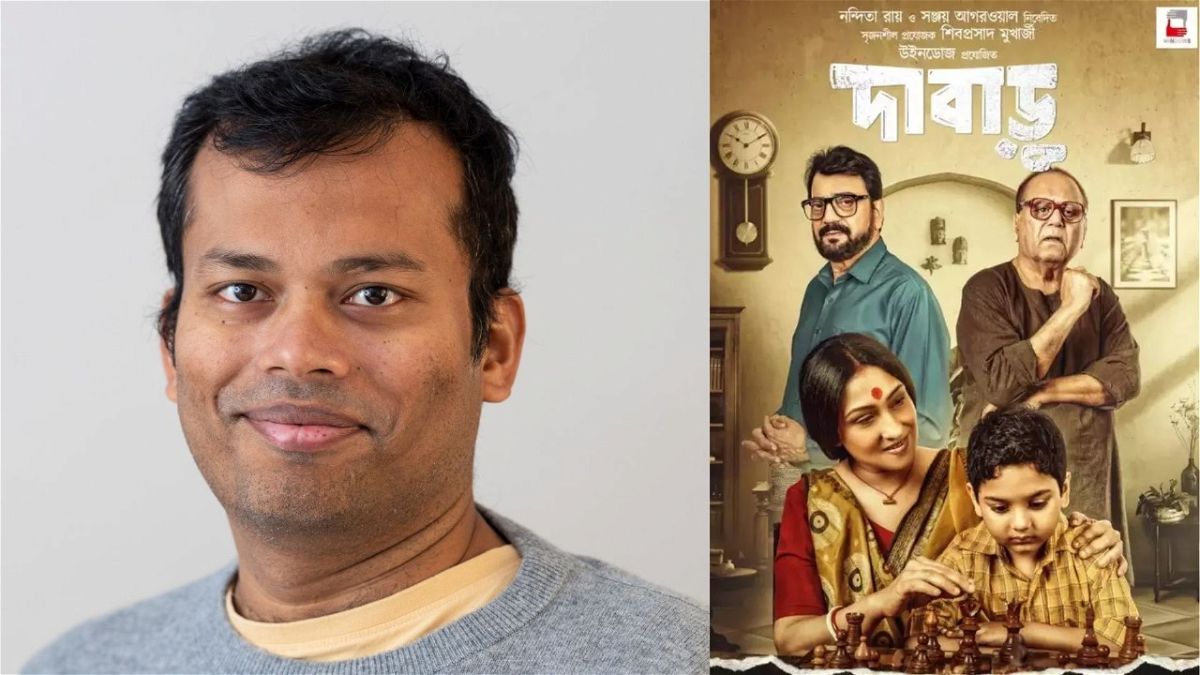"You should never attack an unarmed king" - An Honest review of Dabaru, A movie based on the life of GM Surya Sekhar Ganguly
Dabaru is a movie based on the life of top Indian Grandmaster, Trainer and author - GM Surya Sekhar Ganguly. This is an one-of-it's-kind film, this being the first movie based on the life of an Indian Chess Grandmaster! The movie had a theater release on 10th May in West Bengal, and a few days later in other states. Aditya Sur Roy from ChessBase India lives in Hyderabad, and decided to watch it with his family! In this article, he shares his experience of watching the movie, and an honest review. This is a spoiler-free review, so you can read this even if you haven't watched it! Keep on reading for the full review.
A review of the movie "Dabaru"
“You should never attack an unarmed king,” said the mother of young Souro who learned the concept of a stalemate easily through fun stories of battles and wars.
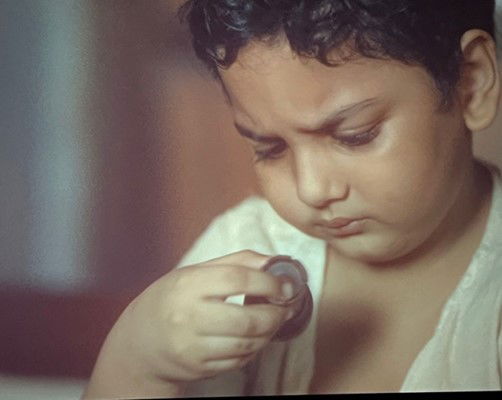
Since the day I came to know that a Bangla film was about to be made on chess and that too inspired by the life of Grandmaster Surya Shekhar Ganguly, one of the most decorated players of the country and of course my city Kolkata, my excitement had no bounds.
As we are currently residing in Hyderabad, we had doubts if we could even get to watch the movie but thankfully the film was released here for a week and we made sure that there’s no way we are gonna miss the opportunity. I returned after a month-long tour and was super excited to watch Dabaru with my family. This was the first time since we got married that my parents were in Hyderabad so that added to the excitement. My wife, Mona made sure everything was arranged as she is always the best planner.
As we entered the theatre, I was a little disappointed with the turnout. There were not more than twenty people who came to watch the movie. Though it was understandable that it was a weekday and not too many people would be interested to watch a movie in bangla about chess, but somehow it felt like a personal loss. My first ever reference to a chess movie was Searching for Bobby Fischer (1993).
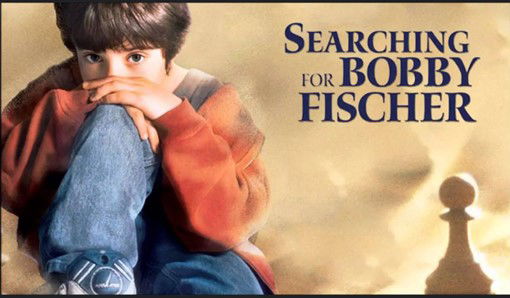
I have seen that movie countless times and I have been heavily inspired and influenced by it. I hope this movie also inspires a lot of people especially youngsters to be a part of the chess world. So the film started and I could already see my wife and mother hooked to the film. I have never seen my father so engrossed in watching anything and that made me really happy.
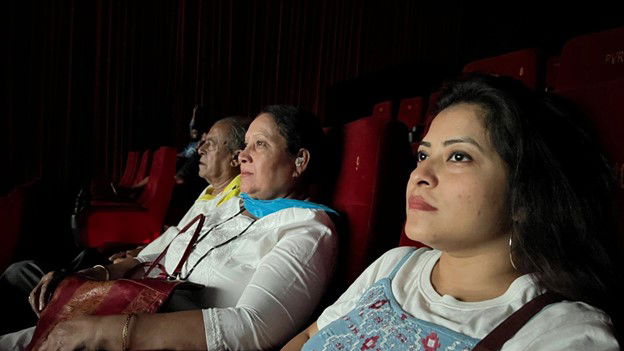
To me, the film Dabaru is a lighthearted approach to making the game of chess easily understandable by the general audience through the life and journey of Souro. It was quite evident that the homework was done and a lot of effort was put in to make the game of chess likable and relatable. Using references from battles and wars and explaining complex chess terms such as stalemate and Zugzwang. The clocks, the chess sets, the pieces, and even the locations were set according to the period of the film. Many chess players in the movie were actually chess players which did not let the authenticity of the subject shy away.
The film also delves deep into the crisis of a middle-class family and the everyday struggle to make ends meet. An unsuccessful father turns alcoholic and the family is doomed to the mercy of cruel money lenders. The tarnished and uprooted glory of the family was delicately portrayed. You could notice poverty screaming from the corners of the dimly lit rooms, used/torn clothes, half-filled plates, and the grandpa’s glass, which could be seen as broken but fixed with tape.
The film carefully explores the generation gap between a grandfather and his grandson which is weaved beautifully to show the intricate details of the game without being boring. The bond shared by the two is what makes the movie magical. The relationship between the two also shows how important the role of a grandparent is and how selfless they can be just to see their grandchildren do something in their lives.
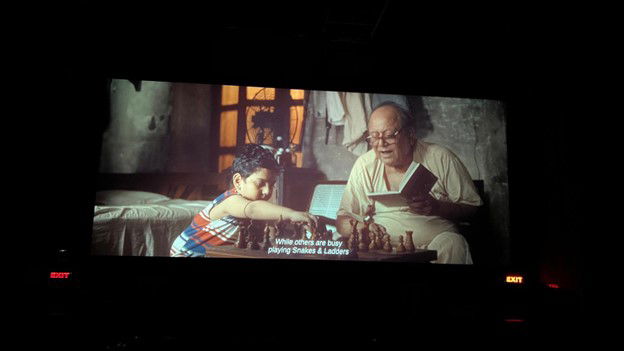
The character of the mother is very well-written and brilliantly played by Rituparna Sengupta. As she goes through waves of emotions during the film, I could see my mother relating to her. There were beautiful scenes crafted to showcase the relationship between the mother and son. There was also a short fun blind game played between the two. Her worries, insecurities, hopelessness as well as hopefulness were all beautifully portrayed.
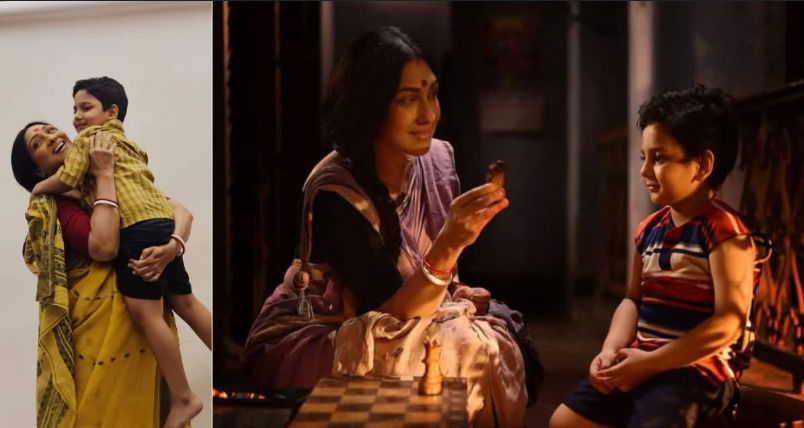
The most important thing for any player to be successful is to get the right guidance and coaching. Souro was lucky to get Rathindra Nath Chakraborty as his coach who shaped him to be a great talent. Rathindra may remind you of your favorite coach or the coach you never had. The character explores the determination and the passion of a coach and also the importance of not influencing rigid ideas to a player and letting him play his natural game.
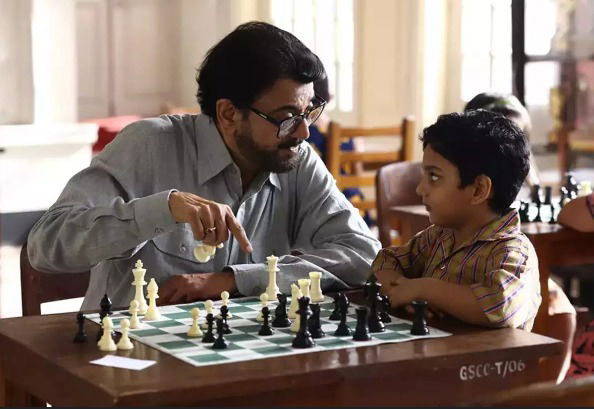
I simply loved the moments shared by Souro with Debangana. Yes, you can find it a bit cheesy and unnecessary, but it gives immense depth to the character of Souro and also makes him more relatable to a youngster. Debangana plays the character of a young teenage girl who happens to meet Souro by accident and they share a deep friendship which did not last long.
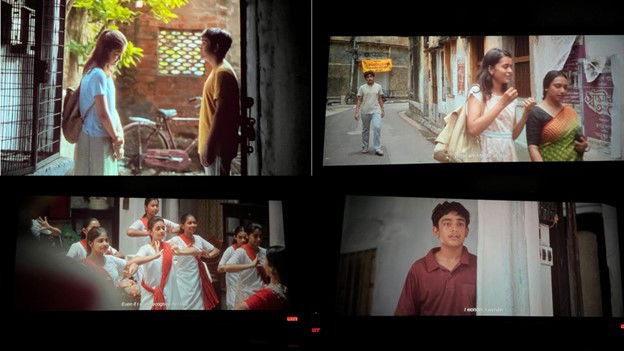
One detail I was confused about that even though Souro was winning tournaments and earning a fair amount of money, there was no change in the conditions of their house or their lifestyle. Some occasional feasts could be seen, but the wears and tears of the house were the same. It can mean that all of his earnings were put back into his training else, it was just ignored.
I would not deep-dive into the movie further but overall I would say that I liked the movie. I could see everyone exiting the hall with a smile including my parents and that was enough for me. While I think the whole writing of the film could have been a lot better and crisp, I liked the way the characters were written. The total running time of the film is 131 minutes, which I found a bit too stretched. I am not sure if there are any thresholds for a film and it has to be of a certain duration but it could have been easily 10-15mins shorter.
I haven’t seen Pathikrit Basu, the director’s other works, but I would give him the props of being able to put forward such wonderful performances. I have followed Nandita and Shiboprosad's (the producers) work for a long time and I could see some of their influences in the movie.
The star of the movie is the hope of an ordinary boy from an ordinary family to do the extraordinary. I was lucky enough to watch the movie in the theatre and in case you have missed watching it, please do watch when it airs on OTT.
Movie Cast
Rituparna Sengupta as Karuna Devi
Chiranjit Chakraborty as Rathindra Nath Chakraborty
Dipankar De as Nabin Sarkar, Souro's maternal grandfather
Kaushik Sen as Samiran
Shankar Chakraborty
Kharaj Mukherjee as moneylender
Biswanath Basu
Sanghasree Sinha Mitra
Samadarshi Sarkar as teenage Souro, who became the grandmaster
Abhijit Guha as Sports Minister Subir Banerjee
Arghya Basu Roy as young Souro
Tirtha Mistry
Credits
Presented by Nandita Roy and Sanjay Agarwal
Produced by Windows
Creative Producer – Shiboprosad Mukherjee
Creative Advisor – Zinia Sen
Directed by Pathikrit Basu
DOP - Madhura Palit
Editor - Md. Kalam
Screenplay – Aritra Banerjee
Dialogues – Arpan Gupta
Art Director – Ananda Adhya
Costume Design – Sulagna Choudhury
Music – Bonnie Chakraborty, Prosen
Background Score - Bonnie Chakraborty
Programming and Arrangement - Tamal Kanti Haldar and Sudipto Paul
Sound Design and Mix – Tirthankar Majumdar
Graphics – Rajatsubhra Majumdar
This article was edited by Himank Ghosh



